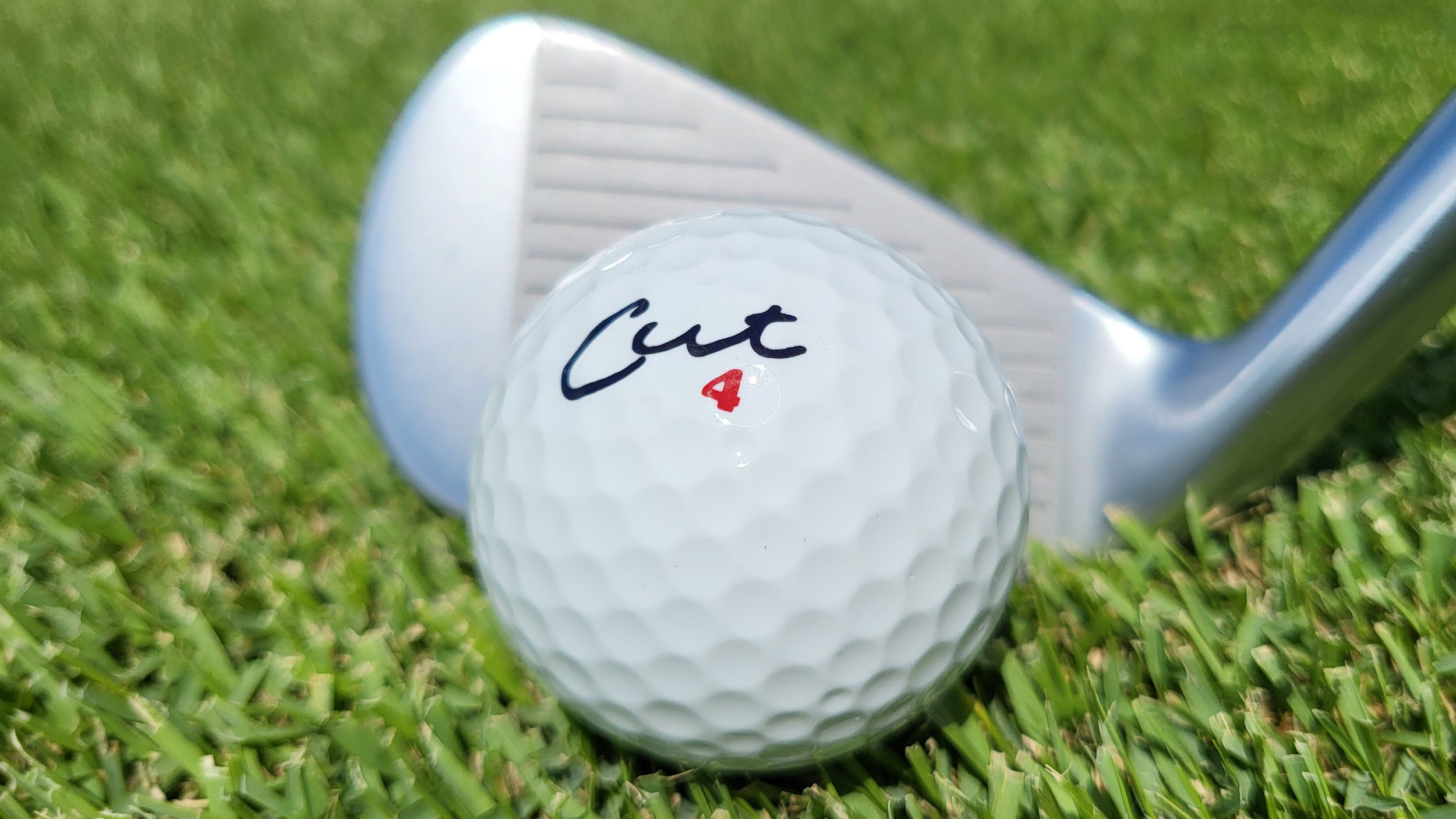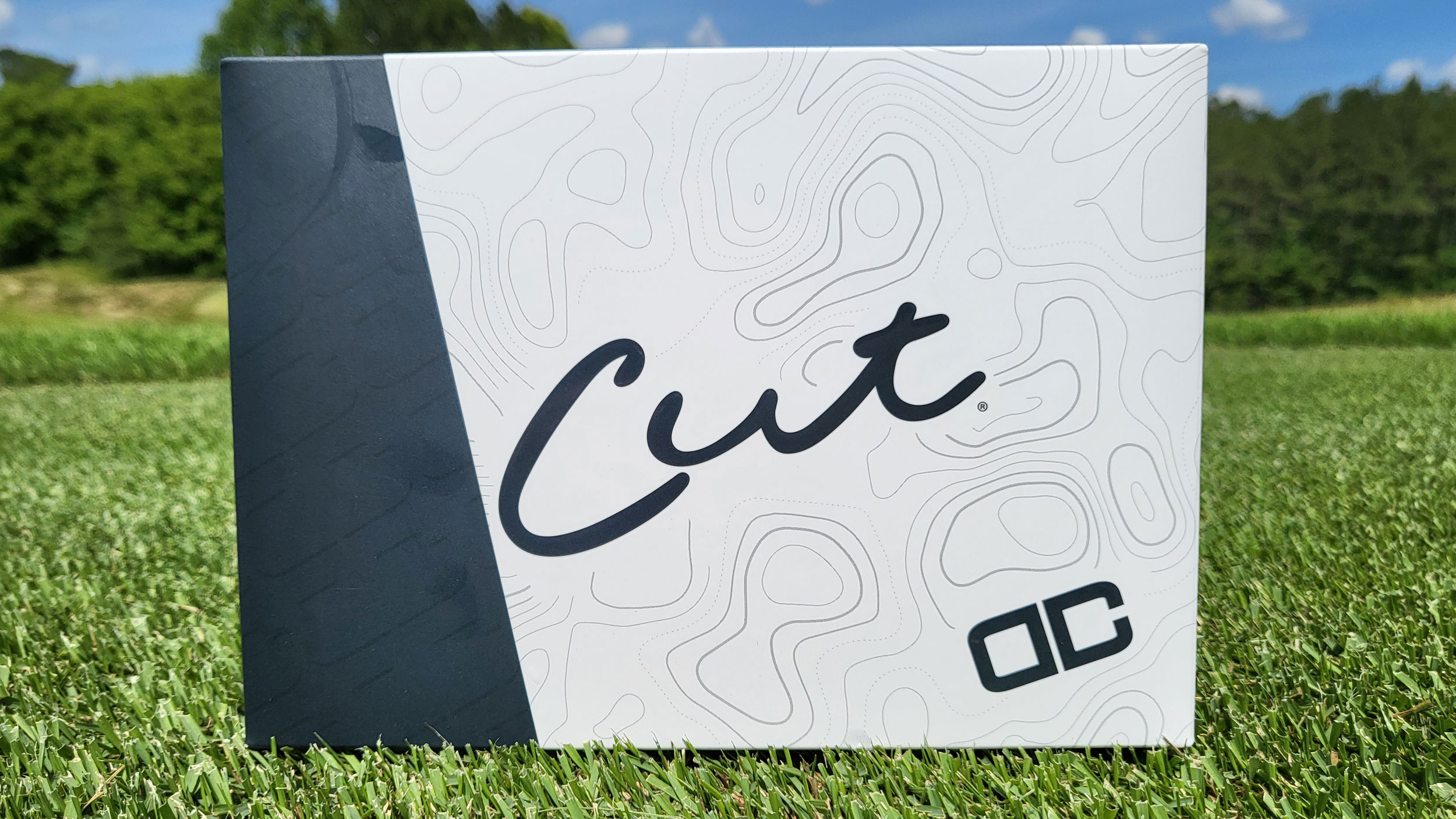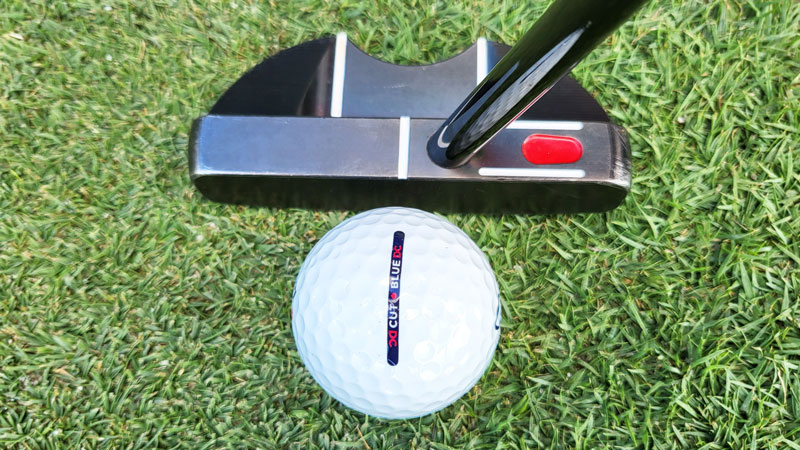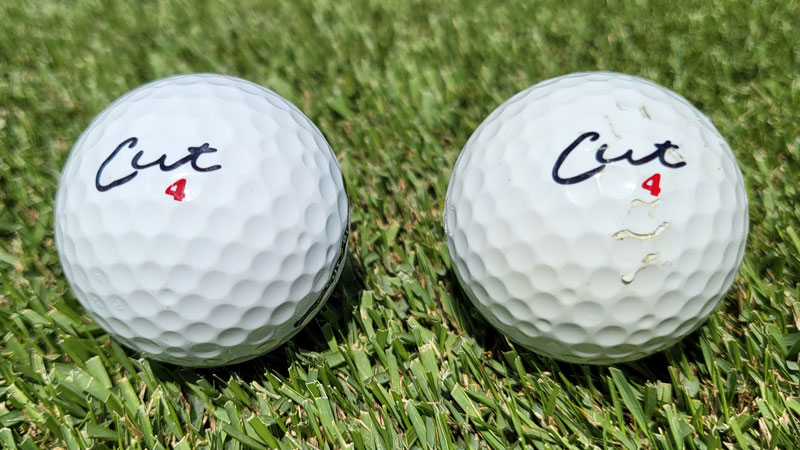Cut Golf Cut DC Golf Ball Review
In this Cut DC review, Chris Wallace tests one of the most affordable four-piece, urethane golf balls out on the course

Cut Golf might not be a household name in the golf ball market but the company has carved out a nice niche in a short time by delivering golfers with a strong combination of performance and value. And its top ball, the Cut DC, does just that, as it’s impressive around the greens and long off the tee while providing great feel through the bag.
-
+
Impressive greenside spin and control
-
+
Highly competitive in terms of driver distance
-
+
Soft yet responsive feel on and around the greens
-
+
Strong performance value at this price point
-
-
Cover durability was an issue in testing
Why you can trust Golf Monthly

Cut Golf Cut DC Golf Ball Review
The premium golf ball market is a tough place to make a splash for a newcomer. Titliest has been the dominant force in that space for decades, and companies such as Bridgestone, Srixon, TaylorMade, and Callaway all have strong followings and significant Tour presence when it comes to their golf balls. But that hasn’t kept new companies from entering the fray in recent years, some of which have enjoyed success.
Included among that group would be brands like Vice, Snell, Kirkland, and Maxfli, all of which offer tour-caliber golf balls, many of which come at a more competitive price point than the game’s most popular balls. You can add Cut Golf to that list as well. The California-based company was founded in 2016 with its primary goal being to give golfers a better combination of performance and value than the other options they had to choose from.
Cut golf balls range in price from just under $10 a dozen to just under $30 a dozen for the brand's most technologically advanced golf ball, the Cut DC, which is a four-piece, urethane-cover golf ball. The DC stands for Dual Core technology, a design approach that features a softer inner core and firmer outer core to create optimal performance both in the long game and around the greens. I recently had the chance to test the Cut DC and from a performance standpoint it impressed.

The testing I conducted with the Cut DC took place at Atlanta National Golf Club. I first tested the DC against the Maxfli Tour X, both at the short game area and on the golf course to draw comparisons related to feel, spin, distance, and durability. I chose the Tour X because it’s another four-piece, urethane golf ball that would fall into the value category for a ball of this design. I also tested it earlier this spring and came away highly impressed. And then finally, I played a couple of 18-hole rounds with the Cut DC to see how it fared when trying to put a score together.
In my initial testing at the short game area when hitting pitch shorts and chip shots, as well as wedge shots from roughly 70 yards and in, the Cut DC performed at a high level. In fact, it exceeded all expectations in terms of greenside spin and control and clearly outperformed the Maxfli in that regard. It also provided a pleasing, soft feel when playing shots around the green and when putting.
As I moved my comparison testing to the golf course, I expected the Cut DC to potentially struggle against the Tour X, which in my earlier testing proved to be a standout in terms of distance and long-game performance. That wasn't the case, however. The DC consistently kept up with the Maxfli off the tee and I found the two balls to be similar when hitting approach shots as well.

The biggest difference I found in the long game between the two balls was that the Cut DC produced a much higher trajectory off the driver. I would also say that between the two the DC felt slightly softer off the face when hitting full iron shots, while the Maxfli produced more of a click. Feel and sound off the driver were very similar.
The initial performance I saw from the Cut DC left me looking forward to playing the golf ball in actual rounds. One thing I was looking forward to seeing was what type of workability the ball provided, as the company claims workability is one of the DC's strongest attributes.
On the golf course, the performance was there once again. I continued to see a higher trajectory off the driver, but the ball flight was stable in the wind. I also found that I was able to work the ball well with the DC, especially with the irons, both in terms of shot shape and trajectory. And the stopping power when hitting approach shots into the greens was impressive, even from lies in the rough.

The Cut DC did have some issues with cover durability. On the left is a new ball while on the right is an example of some of the wear/scuffing after an 18-hole round.
It wasn’t all peaches and cream, however, as the Cut DC did exhibit some issues in terms of cover durability, which I was concerned about after the initial testing I conducted against the Maxfli, which is a far more durable golf ball. Most problematic with the DC were full wedge shots. They created significant scuffing, to the point that at times there were small frays to the urethane cover. In fairness, I didn’t feel the need to take the ball out of play over the course of 18 holes, but it was heading to the shag bag after that.
Durability concerns, of course, leave golfers with a decision to make, because from a performance standpoint the Cut DC was outstanding across the board. And its retail price is far below the most popular premium golf balls. If you’re a golfer who’s looking for a Tour-caliber golf ball at a budget price point, I think you have to expect to make some sort of sacrifice. That being the case, the Cut DC is certainly worth a try, as its performance belies its price point.
Subscribe to the Golf Monthly newsletter to stay up to date with all the latest tour news, equipment news, reviews, head-to-heads and buyer’s guides from our team of experienced experts.

Chris joined Golf Monthly in February of 2022, becoming the organization’s first full-time staff writer in the United States. In his role at Golf Monthly, Chris reviews a broad spectrum of golf equipment, ranging from the latest in golf clubs to what’s new in the world of golf technology. His vast experience in the game allows him to look beyond the marketing hype to judge the merits of the latest equipment for golfers of all ability levels. As for the trend in golf equipment that Chris has been most impressed with in recent years, the Players Distance Iron category would earn that distinction, as golfers now have far better options for irons that provide the assistance that so many need in terms of distance and forgiveness without forcing them to sacrifice look and feel.
On a personal level, Chris played college golf and was a three-year letterwinner and two-year captain at Lynchburg College in Virginia and later spent two years as the assistant golf coach at the University of Virginia. The vast majority of his professional career, however, has been spent as a sports writer and editor. In the early phases of his career, he covered college football, college basketball, and golf for different newspapers and websites before turning his attention solely to golf in 2011. Over the course of the past decade, Chris managed the Instruction Blog for GolfChannel.com and more recently created equipment-related content for TGW.com and 2ndSwing.com.
An avid player, Chris currently maintains a handicap index of 2.4 and has a career-low round of 66, which he has shot on three occasions. He lives about 20 miles north of Atlanta in Roswell, Georgia, with his wife, Stacey, and is a member at Atlanta National Golf Club.
Chris is currently playing:
Driver: Callaway Epic Sub Zero, 10.5*
Fairway wood: TaylorMade M3, 17*
Hybrid: Callaway Apex UW, 19*
Irons: Mizuno JPX 921 Forged, 4-PW
Gap wedge: Cleveland RTX 4, 50*
Sand wedge: Titleist Vokey SM6, 56M
Lob wedge: Titleist Vokey SM8, 60L
Putter: SeeMore Nashville Z3C
Ball: TaylorMade TP5x